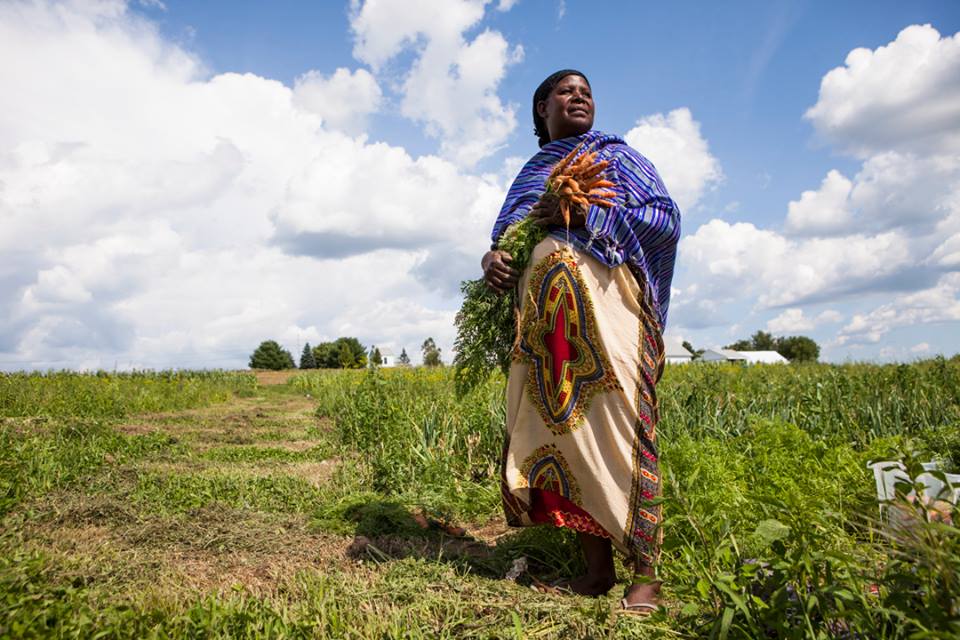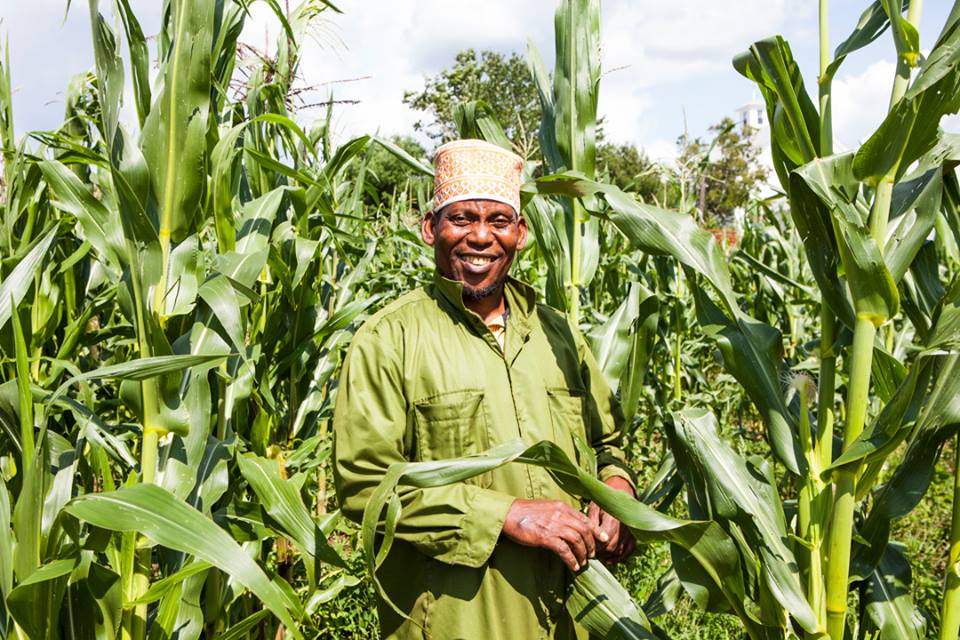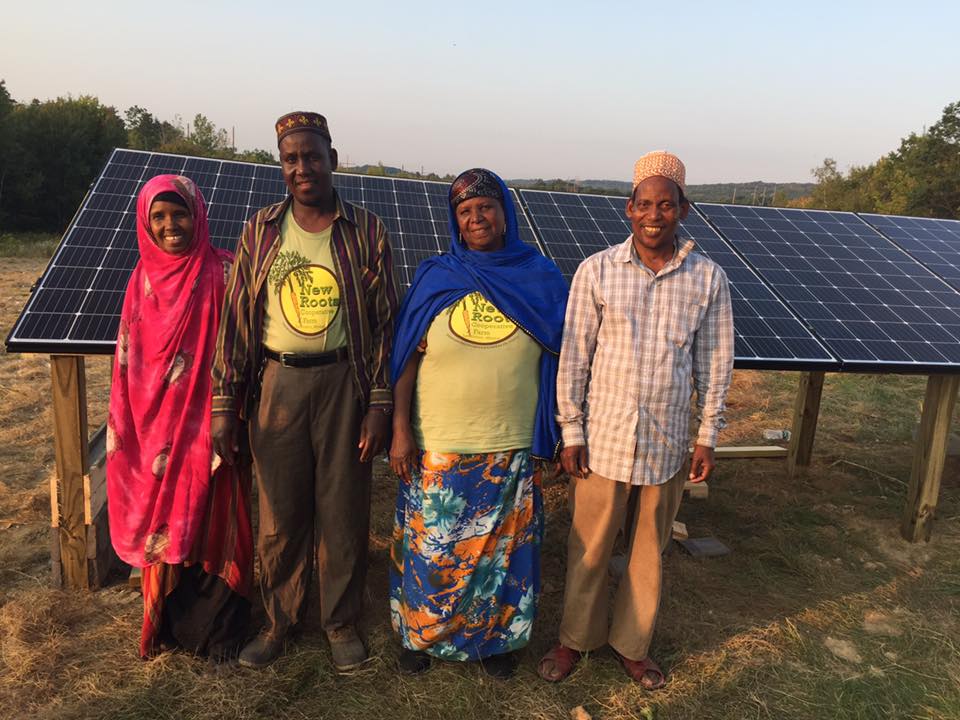by Julia Harper, ALT Associate Director

Saynab Ali, at Packard-Littlefield Farm in Lisbon. Photo courtesy of Cultivating Community.
“The special part was the people,” said Seynab Ali, about the best part of her 10 years of farming at Packard-Littlefield Farm (PLF) in Lisbon. “The relationship [with the then farmland owners, Bob and EllaMae Packard] was very strong. Even their neighbors were really good people. We have a lot of kids and families; we were not quiet people. They respected us a lot.” Seynab and three others, Jabril Abdi, Mohamed Abukar, and Batula Ismail, are Somali-Bantu farmers who landed at the farm in Lisbon in the mid-2000s to begin rebuilding their farming careers in Maine after escaping a devastating civil war in Somalia. The four joined a then-new immigrant and refugee farmer training program based at PLF, called the New American Sustainable Agriculture Project (NASAP), which was run by Brunswick-based Coastal Enterprises, Inc, and in 2009 was adopted by Portland-based food justice non-profit, Cultivating Community.

Jabril Abdi at Packard-Littlefield Farm in Lisbon. Photo courtesy of Cultivating Community.
PLF is a 500-acre property spanning three towns (Lisbon, Sabattus, and Lewiston), of which about 30 acres is chemical-free managed cropland leased by Cultivating Community for the NASAP, and the remaining lands are composed of working fields, forests, and wetlands. The land is protected by conservation easements held by Androscoggin Land Trust, which were made possible with funding from the Land for Maine’s Future Program and the Farmland Ranch Protection Program, ensuring the land will forever be available to agricultural production. The property is privately owned and managed. Bob and Ella Mae Packard had the desire to protect the land they loved for the benefit of the future of local food, wildlife, watersheds, people, and future generations in proximity to the land’s natural filtration of water and air. In 2018, the Packards sold the property to new owners with the easement in place who are also interested in maintaining the sustainable agricultural practice currently happening on the property.

Farmer-owners at New Roots Cooperative Farm in Lewiston. From L to R: Batula Ismail, Mohamed Abukar, Seynab Ali, and Jabril Abdi. Photo Courtesy of New Roots.
Meanwhile, in 2016, Seynab, Jabril, Mohamed, and Batula were able to leverage support from the program on conserved land at PLF to launch their own cooperative farming business in nearby Lewiston, closer to where they all presently live; they named their venture New Roots Cooperative Farm. With the assistance of Maine Farmland Trust (MFT) and Land For Good, the farmers were able to secure and a former 30-acre dairy farm within Lewiston city limits. MFT purchased the property and is now leasing it to New Roots. The famers are also working with the Cooperative Development Institute for Business and Cooperative Development. The farmers face many challenges in trying to establish a new business in this country, some that are unique to the immigrant community, and some are common to all beginning farmers. Still, New Roots is determined and flourishing. The land has been productive. They currently offer a CSA (Community Supported Agriculture) program with 110 members and 11 pick-up locations, 10 wholesale accounts including schools and co-op retail, sell at 5 farmers’ markets, and in 2018 they recently re-opened the former Blackie’s farmstand on Sabattus Street in Lewiston. “We are so happy to have our own land!” Seynab remarked. “Farming at Packard Littlefield farm for 10 years, it helped us grow our business. We want to make our new farm into a big business.”
The photos in this feature are courtesy of Cultivating Community and New Roots Cooperative Farm.
